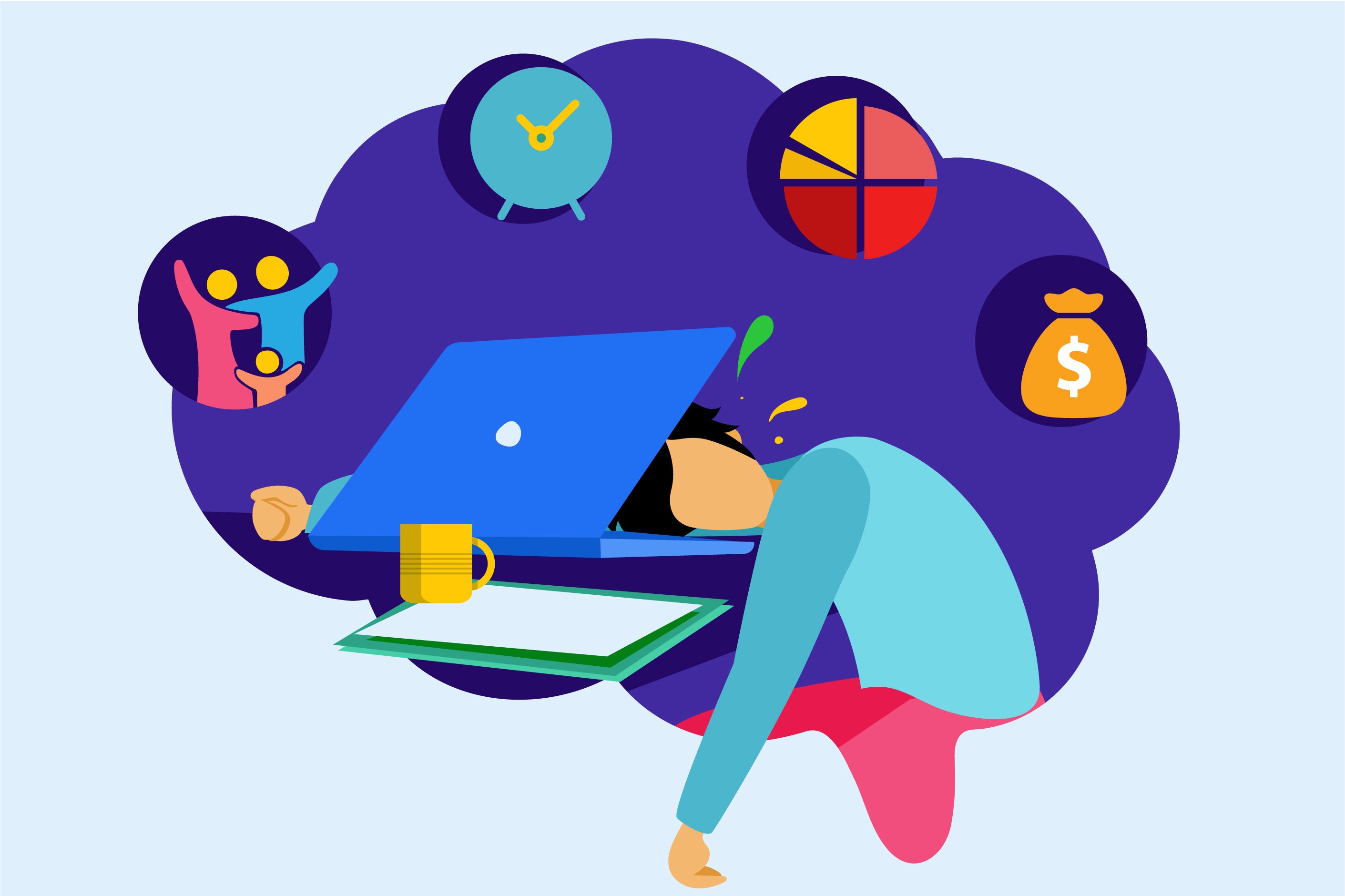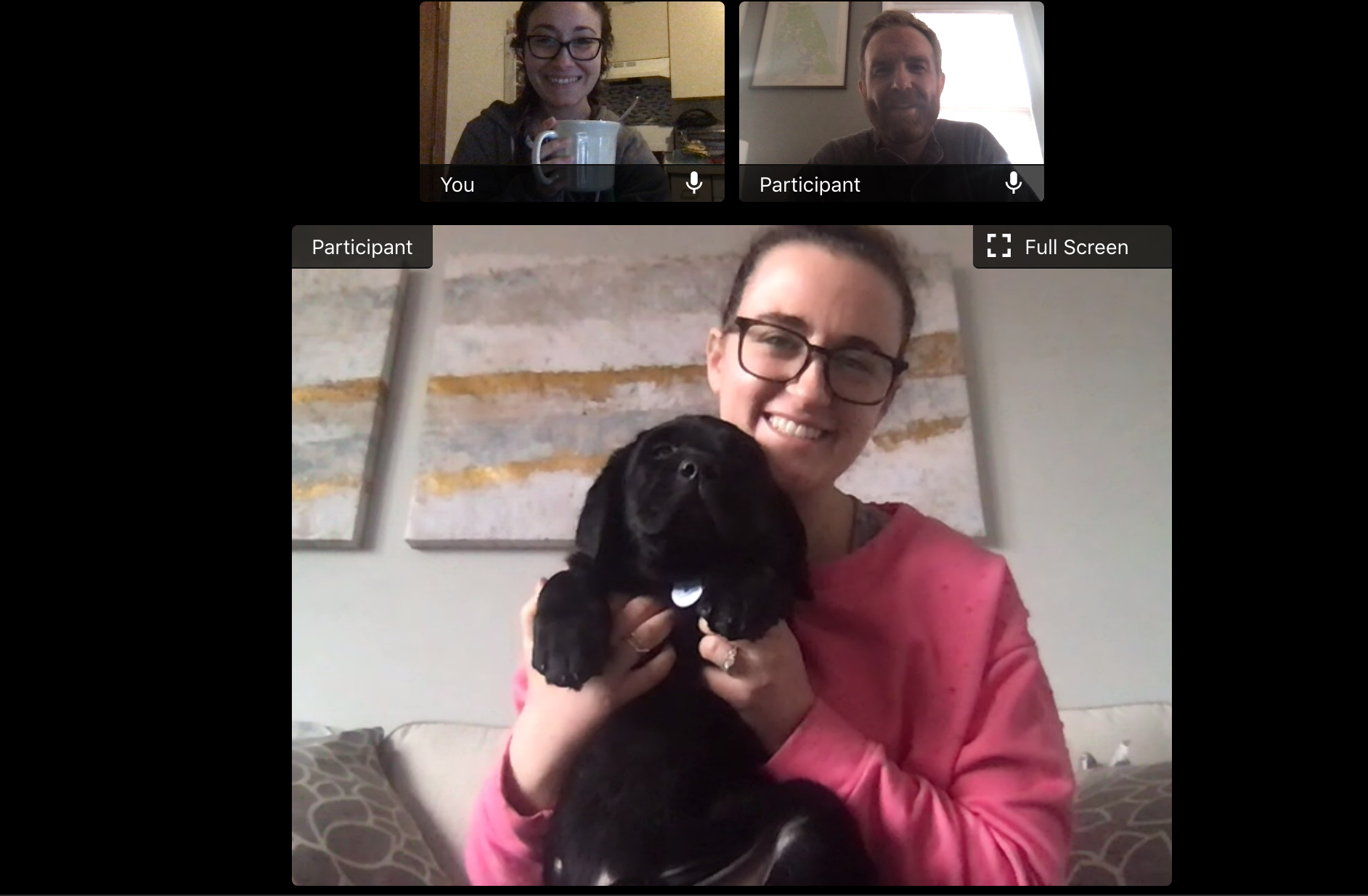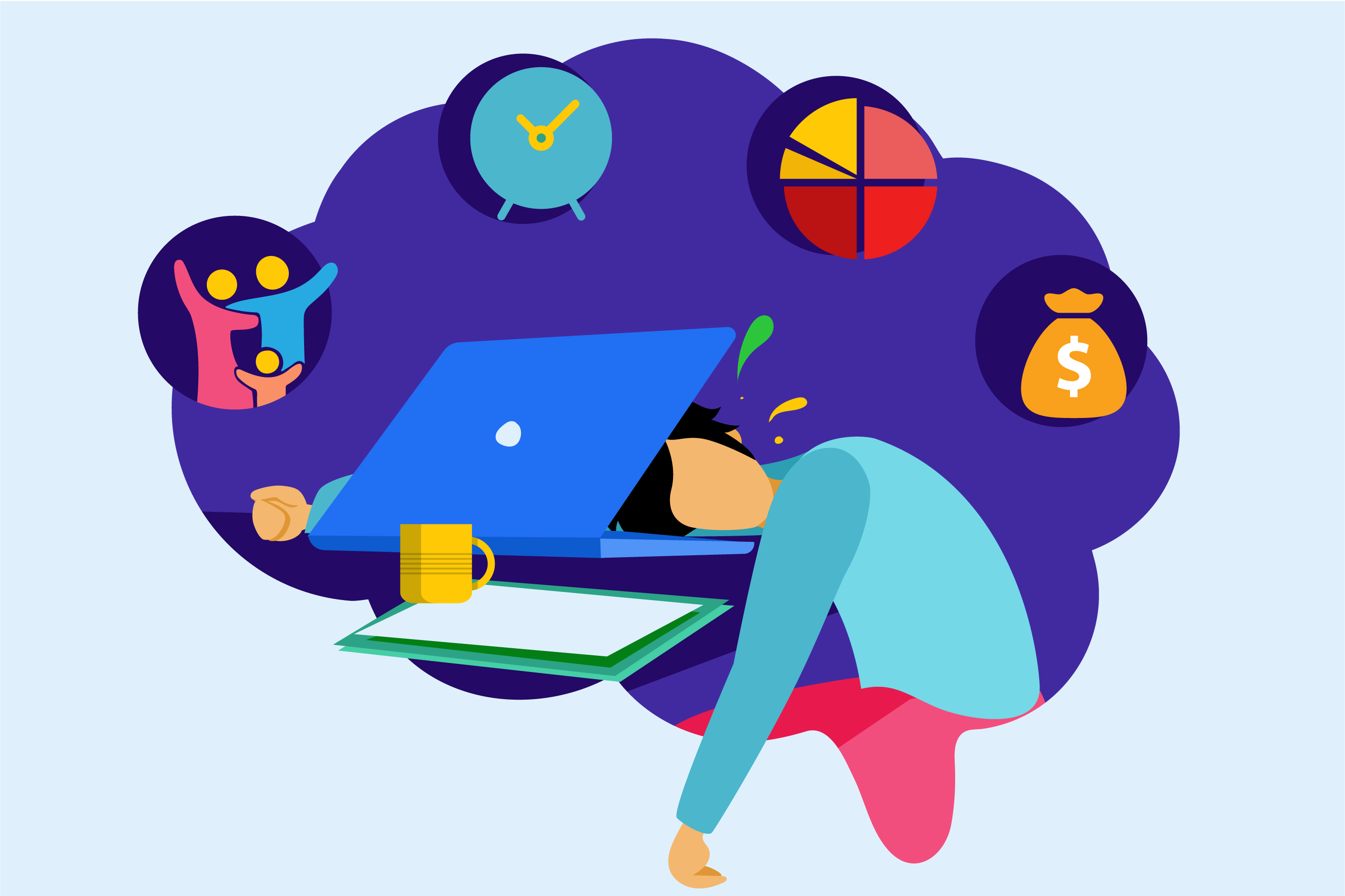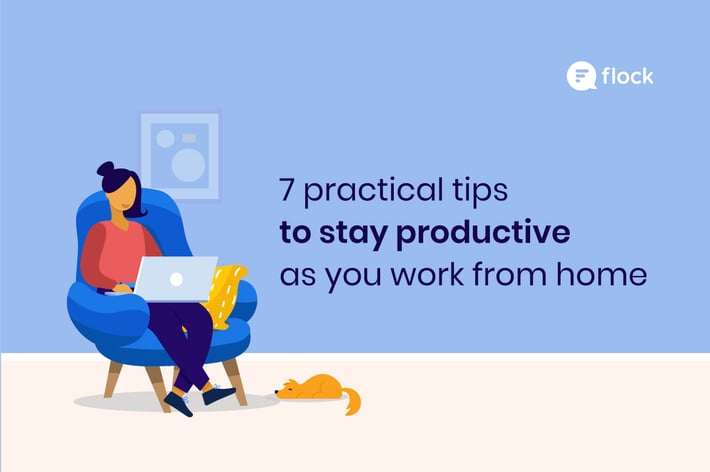
Working from home—whether due to illness and quarantine or personal and professional preference—can get lonely and stressful, even if you’re prepared.
With businesses all over the world taking action to help combat the spread of Coronavirus, many organizations—including Flock—are transitioning to remote work. Thousands of businesses—big and small—are making the switch every day, leading to a rapid rise in the remote workforce. However, the combination of working remotely for the first time and the unnerving news surrounding the coronavirus outbreak is sure to take a toll on the mental wellness of many who work from home.
Confession time: Every day, I find myself struggling to pull away from coronavirus news on social media or stay social while working from home during a company-wide remote work test. Working remotely, it’s hard for me not to become a “Lonely Garbage Slug.” At times, I’ve wanted to curl into a ball and forget about work entirely. But the world goes on, and so does work.
Thankfully, I have a team that keeps me occupied through virtual coffees and lunches, video conferencing, and consistent messaging. This support—and my own guidelines for keeping inner peace during remote work—has kept me going. But many businesses are new to remote work and aren’t as well-prepared as remote-first companies.
 The Flock team kicking off their work from home test with a virtual lunch hour (with bonus dogs).
The Flock team kicking off their work from home test with a virtual lunch hour (with bonus dogs).
Prioritizing mental health at work and minimizing isolation is now more important than ever before. Here are some ways you—or your business—can help.
- Be social
- *Don't* stay on social media
- Stay active
- Separate your workspace
- Create a routine
- Find your calm
Be social
Breathe in… breathe out… that’s the first step to keeping your cool when you feel anxious or lonely. Remember: if your entire company is working remotely, they’re likely experiencing the same stress. It’s important to know you’re not alone. And the best way to do that is to connect with each other more often.
As a distributed team, Flock already does this through virtual coffees, lunches, or meetings via video conferencing. We also rely on our affinity or “fun” channels to keep watercooler conversations going. Our engineers in Mumbai can chat with our marketers in Boston about music, food, or pets to keep morale up.
Being social can also help you stay productive. Schedule regular 1:1s to check in on your teammates emotionally as well as professionally. Use instant messaging and tools like Asana to keep your team on track. The more you move forward as normal, the more things will feel normal.
*Don’t* stay on social media
It’s okay to log off. In fact, it’s okay to completely unplug. Allow yourself to take breaks from both social media and work—the do not disturb function is there for a reason. Your work will still be there after you finish lunch. Use tools like Screen Time to manage your social media usage and be cautious about fake news or alarmist rumors. Take the time to seek out accounts that help your mental well-being, like The Happy Broadcast, which shares “anxiety-free news” to counteract the stress of social media.
Stay active
It’s easy to spend your entire remote workday on your couch, in your pajamas, staring at a screen for eight hours straight. But that’s not good for your back, your eyes, or your brain. As I said, don’t be afraid to take breaks. The steps you take in an office walking to conference rooms, going to the bathroom or kitchen, or even walking to a coworker’s desk can be replicated right at home—consider taking “desk breaks” where you move to a different workspace. And get some sunshine and fresh air outside! Take a walk or pick up lunch from outside, or even set aside some time mid-day to exercise.
Separate your workspace
A home office setup—whether in a home office or a kitchen—is key to separating work from home and staying productive. Something as simple as setting up a monitor in a corner can designate a workspace and keep you from the pitfalls of working in bed. This also gives you the freedom to move about your house without associating the whole space with work—meaning you can log off at the end of the day and not feel compelled to work after hours.
Create a routine
In a regular office setting, you may spend an hour commuting to work and 30 minutes settling into the office, take a 10 a.m. coffee break, and then work straight until lunch. It’s harder to structure your day like this when you’re working from home. So get dressed and ready for your day when you wake up, even if that means changing from your pajamas to your sweatpants. Make coffee and breakfast and take the usual breaks you would in the office. Take a full lunch break and nourish yourself away from your workspace. And at the end of the day, shut it all down.
Find your calm
Managing your mental wellness is just as important after work as it is during it. So once you log off, put your phone on do not disturb and seek comfort in the things that matter to you. This can mean focusing on a hobby, watching a film or reading a book, making a phone call to a dear (and calm!) friend or family member, taking a nap, or cooking a well-prepared meal. You can only control what you can control. You’ve put in a hard day in the middle of a hard time—you deserve to be well.







